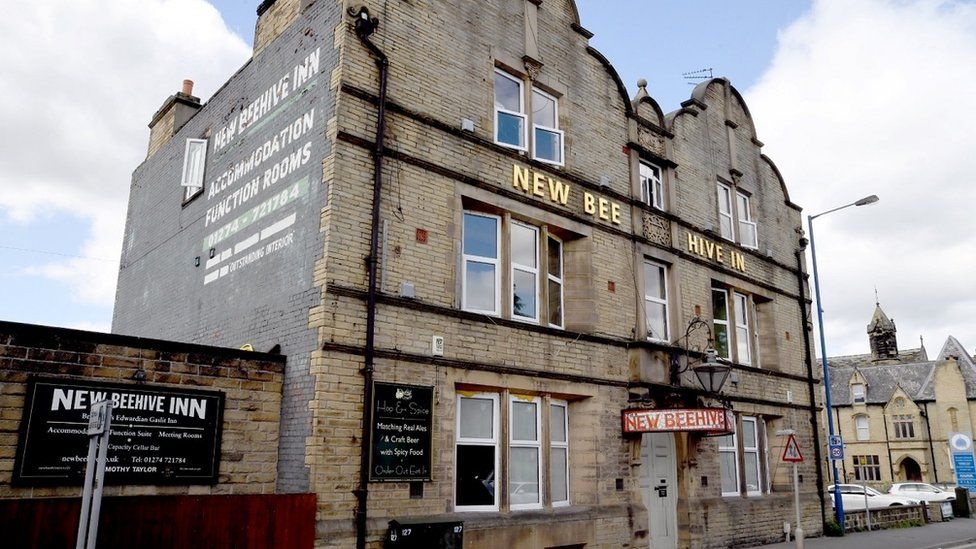Bradford New Beehive pub to be converted despite heritage row
- Published

A plan to turn a listed Bradford pub into supported accommodation has been approved.
However, proposals to change Westgate's New Beehive Inn were described by the council's conservation officer as "substantially inadequate".
Planning officers said the city's "notable change in demographics" meant the application should be allowed.
One objector to the proposals said the pub was the final "public house of its type in the city".
Work to alter the pub, which dates back to 1901, had already started when Historic England granted the building Grade II-listed status in 2022.
The pub had been shut for some time before the listing, according to the Local Democracy Reporting Service.
Its listing described the hostelry as "a rare survival of a late Victorian internal plan of four rooms centred around a drinking lobby" and highlighted many of its period features.
'Largely subjective'
The conversion plan assured the council that all the listed features inside the pub would be retained.
But Jon Ackroyd, the council's conservation officer, criticised the lack of information on how the changes would impact the pub's "heritage significance".
He said the applicant had not provided enough justification that "all reasonable attempts to retain the original use" of the building had been explored before the "alternative use was promoted".
He added: "In both respects the submitted information is substantially inadequate."
In a report, council planning officers said: "Officers are mindful that the evidence provided to make a case as to why the original public house use is no longer viable is somewhat weak.
"However, weight is afforded to the notable change in demographics across the city and the change in footfall to this part due to its distance from the most active parts of the city centre, which make the public house use less viable."
It described objections to the move as "largely subjective".
Follow BBC Yorkshire on Facebook, X (formerly Twitter) and Instagram. Send your story ideas to yorkslincs.news@bbc.co.uk.
Related Topics
- Published27 March
- Published26 March